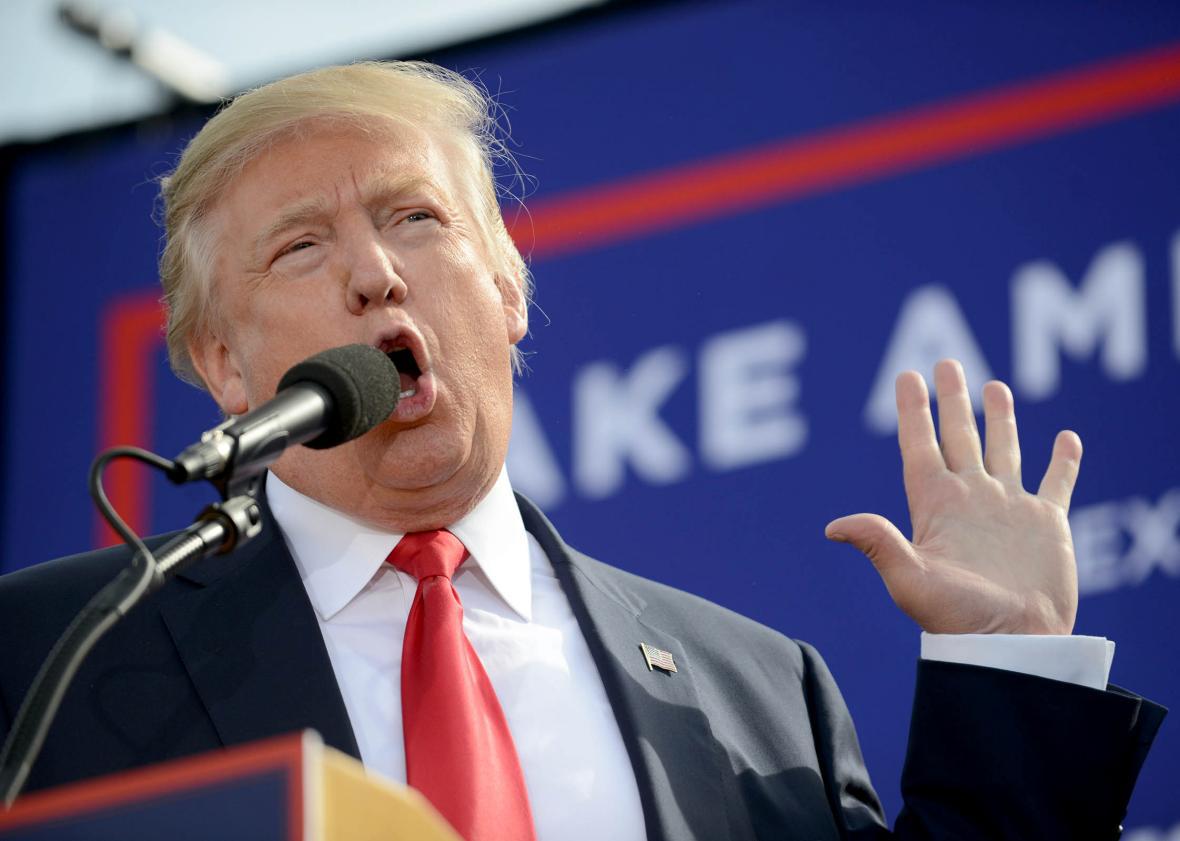As reports of Donald Trump’s alleged sexual assaults have flooded the media, many survivors of rape and abuse have seen traumatic memories resurface or felt renewed pangs of psychological turmoil. Calls to the telephone hotline of the Rape, Abuse, and Incest National Network increased 35 percent in the days after Oct. 7, when the Washington Post published an Access Hollywood video from 2005 showing Trump bragging about sexually assaulting women.
According to ABC, RAINN’s online live-chat hotline also saw a 33 percent spike in contacts starting the day after the video dropped. RAINN President Scott Berkowitz told ABC that increases in hotline activity are common after sexual assault allegations make big-time national news. The organization noted similar spikes in the wake of dozens of women accusing Bill Cosby of sexual assault and after the public outrage that followed ex–Stanford student Brock Turner’s six-month sentence for sexually assaulting a young woman behind a dumpster. Many callers or online chatters have sought emotional support as memories of their own assaults have re-emerged. Others have brought up previously unreported assaults and asked about statutes of limitations to help them decide whether to notify law enforcement.
In the week-and-a-half since the recording of Trump boasting that he liked to “grab [women] by the pussy” came out, much of RAINN’s hotline traffic has come from people saying that Trump’s words and the public’s response spurred them to take action. “At times we had 20, 30 people holding,” RAINN Vice President Brian Pinero told NPR. “We actually doubled our staff, had to start calling people in to come and talk.”
In a way, this surge of people (mostly women) reaching out for help is one positive effect of the media omnipresence of a hateful misogynist who has long bragged about using his status to exploit women with impunity. The response to Trump’s comments and the rush of women claiming he assaulted them has exposed how so-called minor sexual violations—groping, forced kissing, spying on naked women—are too often dismissed as “typical male behavior” or too petty to prosecute. Women who hear public discussion of Trump’s admitted and alleged behaviors are re-evaluating long-buried transgressions they’d hitherto explained away or never labeled as assault. That’s painful and extraordinarily difficult, but it’s one step toward dismantling a rape culture that normalizes so many sexual violations that aren’t rape.
The Trump effect is certainly not all positive, though. For some survivors, Trump is tearing open emotional wounds, reversing progress they’ve made in their healing processes. Watching Trump rationalize his behavior, laugh off his accusers as media conspirators, and claim that they are too ugly for him to sexually assault can torment women who’ve watched their own abusers use the same gaslighting tactics to undermine their experiences. Watching Trump surrogates such as Ben Carson say that it doesn’t even matter if Trump committed sexual assault, that discussions of “morality” should wait until the election is over, reminds survivors of all the people in their lives who denied or enabled their abuse. No one should ever have to relive this kind of trauma, but with an archetype of a sexual predator’s personality profile running for president, many survivors have no choice but to engage. Thankfully, there’s a hotline for that.
